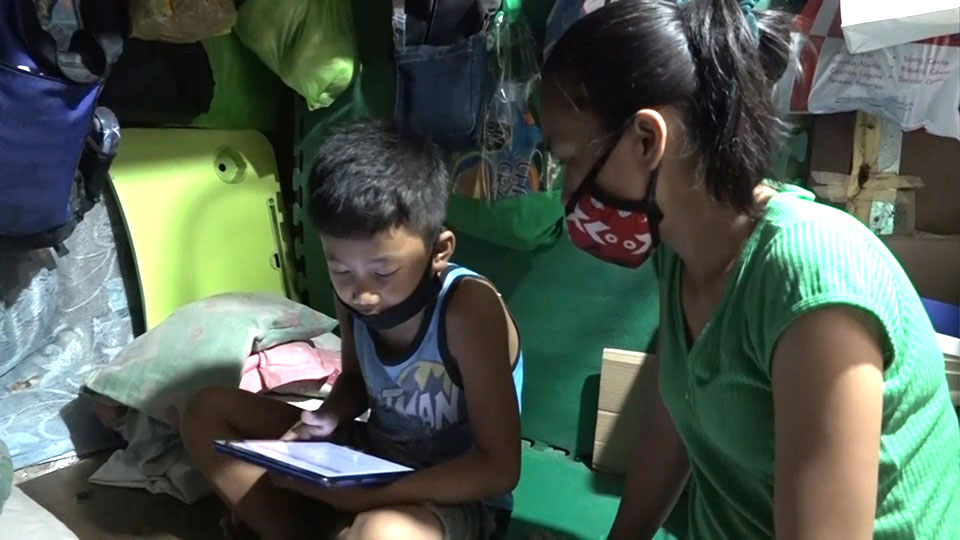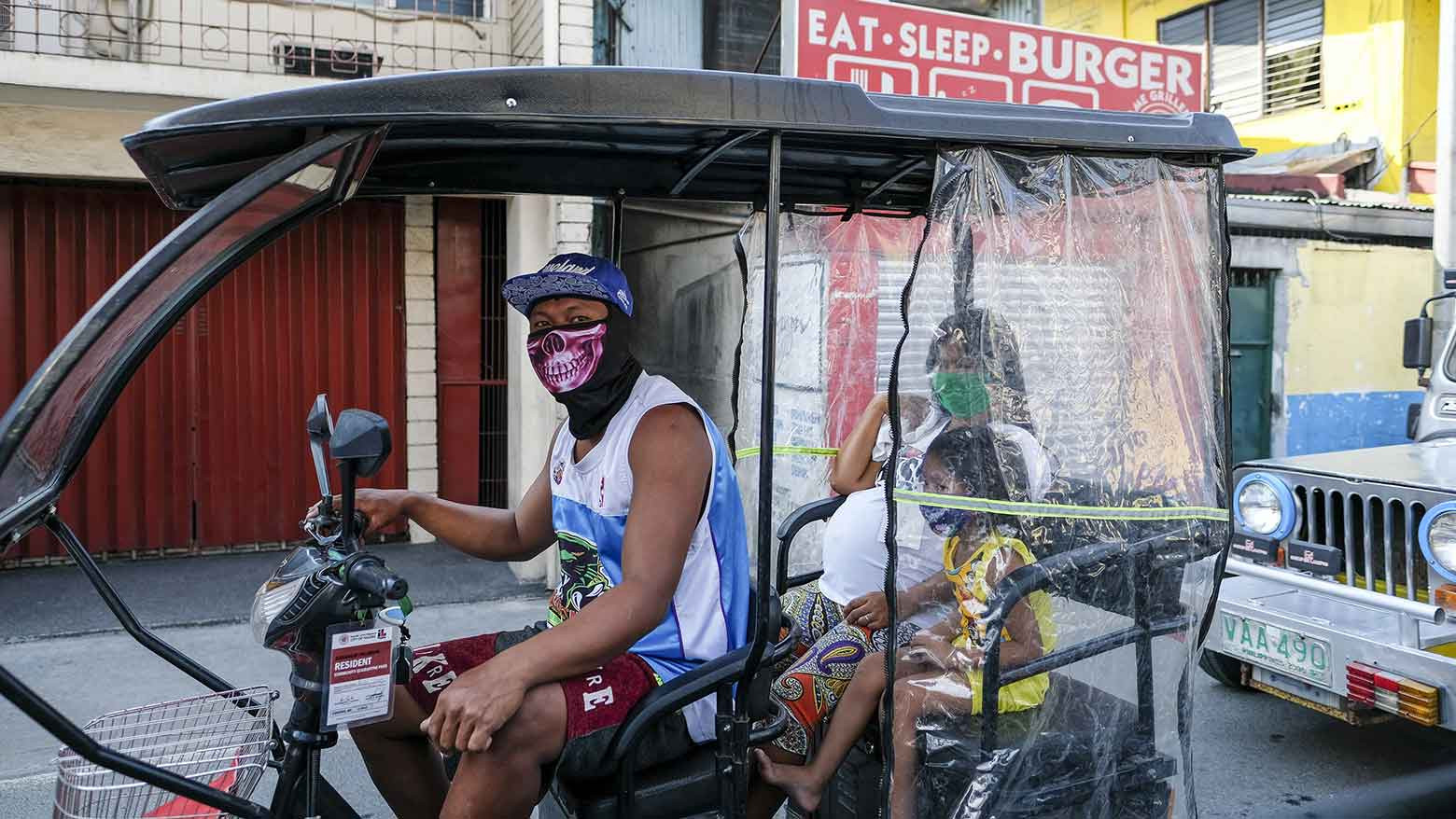John Alwyn Mancio, 26, opened a Japanese restaurant in Manila in January of last year. But he was forced to close just three months later when the lockdown started. He reopened several months later but customers have been staying home. His business now relies almost entirely on online delivery orders.
“It was really hard for me,” says Mancio. “I didn’t know what to do because I had no steady customers.”
The GDP of the Philippines shrank 9.5% last year, largely due to the coronavirus business restrictions. It is the steepest decline for the country since comparable data became available in 1946 and the biggest contraction across all major Southeast Asian economies in 2020.
Many residents — business leaders and civilians alike — are calling on the government to ease restrictions, but Duterte is standing firm. He says containing the virus remains the priority and has made it clear in regular televised addresses that he will not relax the measures until vaccines are widely available.
As in most countries, the anti-virus measures have hit those living in poverty the hardest. Leonardo Armadin, 42, lives in a slum in northwestern Manila. He lost his job as a waiter almost as soon as the lockdown began and has been unable to find any other work. His son-in-law has been keeping the eight-person family afloat by selling everyday goods but Amardin says they have been close to starvation at several points in the past year. This has been a common story in the Philippines during the pandemic; a survey last November estimated that four million households in the country had gone hungry at least once since the restrictions began.
“I need a job, no matter what kind of work it is,” Armadin says. “I can’t even buy food for my children and grandchildren.”

Nine-year-old John Barwela lives next door. With schools closed, he has been forced to stay home and study alone for the past year. He is using one of the tablets that the city lends to poor families for free, but the area’s poor internet connection means it can often be hard to download teaching materials and ask questions.
“I feel lonely because I’m studying at home and can’t see my friends,” Barwela says.
The Philippine education ministry says 14.4 million children, or 60% of students from elementary to high school age, are unable to study online because of a lack of adequate internet access.
The employment problem and school closures have come together to create a particularly troubling development. According to the country’s justice department, there have been several cases of people who have lost their jobs posting sexually explicit videos of their own children on the internet to make money.
The Philippine justice department reports that 1.29 million explicit videos and photos of children were posted online last year, more than three times the figure from the previous year. A number of children who were the victim of such abuse have been taken into protective custody at a shelter in Manila.
”The number of victims is increasing as parents lose their jobs and children are banned from going out,” says Eunice Dipasupil, a staff member at the shelter. “Children who have just been taken into our shelter are confused and deeply hurt. The government must do something.”
So far, Duterte has implemented two rounds of support measures, totaling around $10 billion, which include food and cash for those who have lost their jobs. But critics say it hasn’t been enough and that the benefits are being distributed unevenly.
The country started vaccinations earlier this month, but the spread of coronavirus variants has contributed to a resurgence in the number of new cases. On March 26, the daily tally exceeded 9,800 for the first time since the pandemic began. The government has raised lockdown measures to the highest level.

